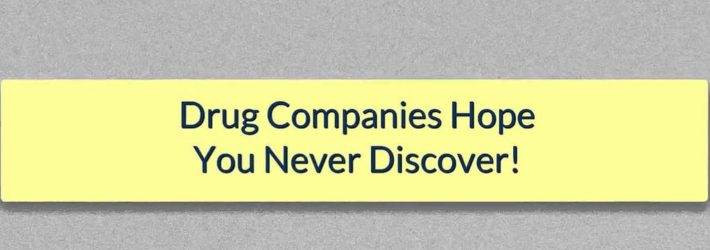You just finished a nice meal and here it goes again-that all too familiar feeling of a volcanic eruption about to happen. You try to drink some water but it feels like something is stuck in your throat. On top of that, you can’t stop burping and you really aren’t interested in reliving the meal (even if it was a delicious meal) that should be going down rather than coming back up. You have been experiencing this regularly so your doctor prescribed a Proton Pump Inhibitor (PPIs).
PPIs are medications that reduce stomach acid secretion to control symptoms of gastroesophageal reflux disease (GERD), such as Nexium, Prilosec, Prevacid, Protonix, etc. GERD is a chronic condition characterized by acid reflux, otherwise known as heartburn. PPIs are the pharmaceutical solution to GERD and were developed to provide symptom relief to a very painful condition. It is important to understand that PPI’s are designed to be used for only a short period of time and long term use, which is not recommended by the drug manufactures, by the way, can have serious negative consequences to your health. PPI’s work by reducing stomach acid levels, but you need stomach acid-it is essential to initiate the process of digestion. Poor digestion can lead to a cascade of negative health consequences. Contrary to what you see on TV commercials and what many doctors believe, in most cases, GERD is caused by too little stomach acid, not too much.
What Are The Symptoms Of Low Stomach Acid?
Symptoms of low stomach acid include heartburn, bloating, burping, indigestion, a heavy feeling in the stomach, flatulence and undigested food in the stool. These symptoms may sound familiar to you since they may also be due to too much stomach acid; however, as you will learn later, having too much stomach acid is not the norm. Other symptoms that you wouldn’t recognize as being related to low stomach acid are discussed below.
What Causes Low Stomach Acid?
So what causes low stomach acid in most people? There are many medical conditions that can impair your stomach acid production, such as autoimmune diseases, bacterial infections, dysbiosis, vitamin/mineral deficiencies, food allergies, diabetes and malfunctions in your lower esophageal sphincter (LES) due to diet and lifestyle. All of these and more are medical conditions which, if left untreated, can lead to not only symptoms of digestive ailments, but can also present many other symptoms not related to your stomach.
Why Do I Feel Better On A PPI?
You probably started taking a PPI because you were experiencing indigestion, heartburn and reflux. You feel better on a PPI because it is reducing your stomach acid levels further-to the point where there is hardly any acid to reflux back into your esophagus. In fact, according to the prescribing information on Prilosec® (2008), a popular PPI, “a single daily dose of omeprazole (Prilosec®) ranging from a dose of 10 mg-40 mg have produced 100% inhibition of 24-hour intragastric acidity (stomach acid) in some patients.” The mean value reported from multiple studies was an 80-94% decrease in stomach acid after 24 hours. So yes, if your stomach acid is that low, you are going to feel better-there is no acid in the stomach to reflux back up! But is it just covering up a symptom, not a disease itself? GERD is a symptom of a much bigger health issue and long term use of PPIs cause more health problems, as we will discuss below. Finding the cause of why you needed the PPI to begin with is important and will take some detective work.
Five Reasons Why Stomach Acid Is So Important
1. The digestion and absorption of protein requires pepsin, an enzyme that initiates digestion in the stomach. Pepsin requires the presence of stomach acid to be activated. This is an imperative first step in protein digestion and low stomach acid can impair this process, leading to a whole host of health issues.
2. Stomach acid promotes digestion and absorption of various vitamins and minerals, such as vitamin B12, folate, zinc, calcium, iron, and many more. These nutrients require a low pH (more acidic pH) to be properly assimilated. PPIs reduce stomach acid and raise the pH, which can increase risk of vitamin and mineral deficiencies (1-9).
3. Stomach acid prevents bacterial and fungal overgrowth – stomach acid kills microorganisms. PPI use has been associated with increased incidence of bacterial and fungal colonization of the stomach (10-13). A warning was made by the FDA in 2012 for PPIs due to an increased risk of bacterial infections along with other safety risks of PPI therapy. It is recommended that PPIs should only be used in older adults indicated for therapy for the shortest duration possible (14). In fact, if you look at the prescribing information for Prilosec® (2008), you will see that “the recommended adult oral dose for the treatment of patients with erosive esophagitis and accompanying symptoms due to GERD is 20 mg daily for 4-8 weeks.” Even the drug companies recommend that you should not take this medication long term.
4. You have trillions of microorganisms living in your intestinal tract. They perform important functions that contribute to optimal health. PPIs change the environment that your good microorganisms reside in throughout your gastrointestinal tract, potentially creating some of the side effects attributed to PPI use (15).
5. When acidified digestive contents enter the small intestine, hormones that control the gallbladder and pancreatic functions are stimulated. This process is important for the digestion and absorption of all nutrients in the small intestine. If the pH of the digestive contents is higher than it should be (meaning it is not acidic enough), it can impact the release of these important hormones that aid in digestion (16).
What Causes GERD?
Let’s think about this for a minute. We obviously need stomach acid or our overall health will suffer, significantly. Then why are we trying so hard to get rid of something that our body was naturally designed to produce? It is because the medical establishment has been focusing on treating a symptom rather than looking for the underlying cause-which takes a lot more time and effort on the medical practitioner’s part as well as the patient’s.
The lower esophageal sphincter (LES) is a valve that keeps stomach acid where it belongs, in the stomach. It should open to allow food into the stomach and shut to prevent food from refluxing back up. When it opens at the wrong time, acid refluxes into the soft, unprotected tissues of the esophagus, causing pain. Although this sounds counter-intuitive, the cause of GERD is usually due to a dysfunction of the LES valve, and in many cases, it is not related to too much stomach acid, but not enough (17).
NOT ENOUGH STOMACH ACID!?!
That sounds crazy, but according to Dr. Jonathan Wright, a physician who has measured stomach acid in countless individuals with GERD, approximately 90% of the patients tested had low stomach acid, not too much stomach acid (17). In the next post Simple Steps to Treat Heartburn And Reflux Naturally, we will explore simple steps you can take to treat this condition naturally, and how to wean off of your PPI if you are already taking one.
(Special thanks to Amanda Connolly, dietetic intern, for her research assistance)
References (see part 3)


